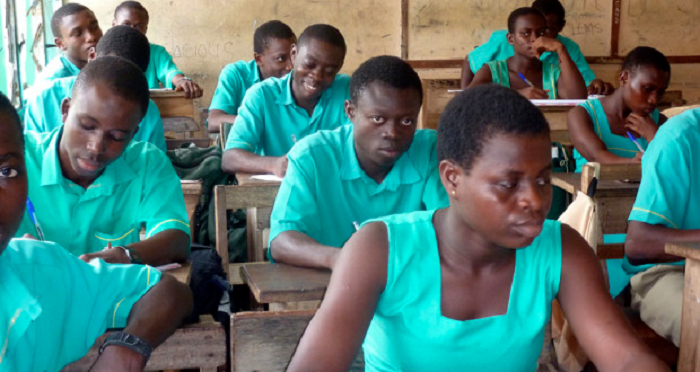The Agbogbomefia of the Asogli State, Togbe Afede XIV, has observed that the implementation of the free SHS policy will help liberate Ghanaians from poverty.
Speaking at a durbar to round off activities marking this year’s Eteza (Yam Festival) of the chiefs and people of the Asogli State in the Volta Region, Togbe Afede lauded the government for doing something that would help create wealth and, indeed, “break the neck of poverty” in the country.
The link between poverty and education is very bold and obvious. Since, by definition, education is an enlightening experience, it frees people to appreciate realities in different spheres of life, particularly when it comes to wealth creation, which is the basis for poverty alleviation and self-sufficiency.
Formal education, especially, is a game changer; it can help a person break the vicious circle of poverty and transform an entire generation into one with a secure and sustainable future.
Ghana, for instance, changed its narrative as one of the poorest countries in Africa to a middle-income country not only because it found oil but also because its educated people increased. This came with a growing middle class which now anchors the country’s growth and development.
One of the country’s illustrious sons, Dr James Emman Kwegir Aggrey, summed up the importance and catalytic effect of formal education when he said: “If you educate a man, you educate an individual, but if you educate a woman, you educate a whole nation.”
His thoughts go to illustrate how permeable formal education is.
To correct the wide development gap between the south of the country and the north, occasioned by colonialism, Ghana’s first President, Dr Kwame Nkrumah, decided to institute a scholarship to help people in the north access education. That policy supported many to receive formal education and helped to produce some of the country’s best in intellectual ability who have served even in international circles.
It is also clear that efforts by successive governments in education have made an impact, although lethargic, leading to the poverty index of the country improving from the 1980’s high figure of more than 60 per cent to 34 per cent in 2015.
It is in this vein that the Daily Graphic associates itself with the happiness expressed by Togbe Afede, who is also the President of the National House of Chiefs. We see the policy as far-reaching because already it is covering more than 400,000 students across the country. In subsequent years, the number will increase, meaning that the future of the students, and for that matter the country, is bound to change positively in the long run.
An educated country is a wealthy, healthy, progressive and powerful nation. Many of the challenges the state is engrossed in boils down to the lack or inadequacy of education. South Korea, China, Singapore, South Africa, Botswana and Mauritius, to mention but a few, are examples of countries that have ridden on the back of education to extricate themselves from poverty.
Advanced countries such as Italy and those in Scandinavia such as Sweden and Norway, have maintained enviable records in human development indices all because they got their educational system and its funding right. Till today, they predominantly provide free education up to the tertiary level and even support students from developing countries such as Ghana.
The Daily Graphic believes that the free SHS policy is the right way to go but calls on the government and its agencies, particularly the Ghana Education Service, to ensure its proper implementation. Reports that some heads of second-cycle schools are charging unapproved fees, in spite of the policy roll-out, are abhorrent and should not be tolerated.
Meanwhile, the government should not see the free SHS programme as an outright achievement but a means to an end which should be continuously monitored and fine-tuned. That will ensure that the purpose of the implementation of the policy is achieved.

